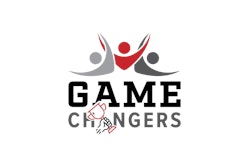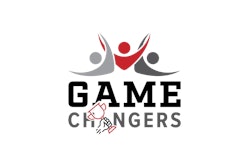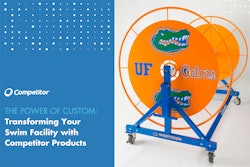
The rapidly evolving landscape of collegiate athletics and sports in general may soon be littered with litigation. It’s that prospect that prompted attorney Christine Brown to launch her own law firm — the Shelton, Conn.-based Christine Brown & Partners — dedicated to protecting the rights of individual athletes and teams. In business since April 1, Brown is already applying decades of Title IX expertise to dozens of clients’ cases, but her services aren’t limited to matters of gender equity. She intends to tackle every issue confronting student-athletes and coaches in 2025 and beyond, including NIL and the transfer portal, athletic scholarships and financial aid, NCAA compliance and eligibility, athlete rights and advocacy, injury compensation and health coverage, and coaching and employment contracts. AB senior editor Paul Steinbach asked Brown, a litigator with a 90%-plus success rate, to make her case for the new venture.
How did you gravitate professionally toward the law and sports law in particular?
I have been practicing law for 30 years. I started my career in a general practice, doing a lot of different areas of the law — criminal and civil litigation, medical malpractice — and really got a wide breadth of experience. It took a while for me to find the area where I really felt most comfortable and felt at home. That happened when I went to work for Fairfield University, where I worked in-house as their director of legal services. I managed their risk management and served as their Title IX coordinator. When I really dove into Title IX, I found that most of the matters I was involved in involved athletes. I was able to get a bird’s eye view from inside an institution, and it really drove me to want to be on the outside, where I could offer athletes support on a multilevel basis and in the many areas they needed support.
What forms did that take?
What I did was represent athletes across the country who were playing in the SEC, Big Ten, all the power conferences in Title IX matters. And that then grew to representing them in contract negotiations — NIL offers and agreements — as well as any kind of issue that arose for the athletes and/or the coaches. I’ve also represented a number of teams that were seeking equity at their institutions, teams that had been eliminated from programs and helping them get reinstated.
Did you see a lingering void that you felt your new firm could help fill?
Without a doubt. While I was providing one service, which was usually of a legal nature to the athletes, it became very apparent to me that there were a number of other things that athletes need, that coaches need, that involve mental health support, financial guidance and really how to be a whole person in this very complex athletic world.
How much competition do you have? Is your new firm atypical in terms of the focus you just described, or is this becoming commonplace?
From where I sit, I do think I am atypical. From the outreach that I have received in just a short time, I’m already confident that I am filling what has been a huge void. And I’m so unbelievably excited about the people who found me already. I’m not only hearing from athletes and coaches in need. I’m hearing from employees of institutions, from people in the athletic world, that they’re looking for somebody to talk to about these issues, because there’s so much work to be done. I think they’re excited to find somebody who wants to talk about these topics.
What is the question that you are asked most often about today’s college sports landscape?
Most individuals who contact me have some kind of serious conflict that’s going on for them. It usually has to do with the fact that they’re at risk of losing something. So, the question is usually around whether or not there are any opportunities to address that loss, to try to salvage something that they might be losing and/or what their opportunities might be going forward. It’s not necessarily a question that they’re asking, but more that they’re in crisis in some way. There are all different levels of crisis, but they’re in crisis in one regard or another, and they’re looking for somebody to advocate on their behalf.
Title IX recently turned 50. As somebody who’s been immersed in that law for more than half its existence, what letter grade would you give the legislation in 2025?
I think that answer varies based on the different presidents we’ve had in office, because over the past 12 years, it has shifted so much. I will say that the current regulations that exist that oversee Title IX, from an institutional point of view, are clear about what needs to be done to try to make sure that the Title IX rights of individuals at institutions are protected. But, in any one matter, because they have shifted so much, there’s often confusion as to how they’re supposed to be implemented. And so, from my perspective, depending on the institution, depending on the issue that you’re dealing with, the grade can vary anywhere from an A to an F. I’d probably say that, on average, institutions are really grappling with having people trying to institute regulations who might not fully understand or be up to speed on what the regulations are and how they affect the people that are supposed to be protected by them.
What do you make of interpretations coming from atypical sources?
Without a doubt, if you’re talking about Title IX, the only place the rules should be coming from is the Department of Education. Anything coming out of the Department of Agriculture? Well, it might be commentary, but it is not binding with regard to Title IX. What I am talking about is the regulations themselves. It’s over 2,000 pages of regulations. They are extremely complicated. You have them shift every four years with a different government. You’ve got employees at institutions who are not lawyers. They are educators or administrators trying to implement processes and procedures without the necessary experience. It’s about an understanding of the law, and it really does result in tremendous confusion and, in many cases, egregious violations of students’ and employees’ rights.
Do you think transgender sports participation is in violation of Title IX?
Under the current regulations, there would be questions as to whether or not it would be in violation. There are many institutions that are dealing with the threat of losing federal funding if they do permit transgender participation. I believe it’s a subject matter that is also facing significant litigation. The topic itself is such a sensitive one that when a story does get publicized, it often evokes great emotions from people. And the reality, I think, is that the number of cases, or the amount of concern regarding transgender athletes, is very, very small in relation to the number of other matters that are out there. While there have been a few cases that have been publicized, I think the issue is going to grow as the transgender population potentially begins to grow. And I think there are going to be a number of opinions as to whether or not transgender athletes do have rights under Title IX. Under the Biden administration, there was obviously an opinion that they do have rights. And under our current administration, it’s gone the opposite direction.
The current stance seems to be that Title IX violation takes the form of rights being denied to cisgender girls and women who are being displaced, or denied championships and scholarships. Do you see validity in that argument?
I do think that there are situations where that could be a valid argument. Yes.
Do you worry that the gains women and girls have made through Title IX could be jeopardized when sports — particularly Olympic sports — are cut in the wake of the House v. NCAA settlement?
One hundred percent, Paul. I think that is an extraordinarily valid concern, along with the number of women’s sports at colleges that may not even be Olympic sports. Women’s sports have always been compromised, and this is going to further extend the divide between women athletes and their being able to get the support they need — the training facilities, the coaching, the practice times — all of these things that are not just about dollars going into their pockets. It’s about the opportunities to be able to hone their craft at the same level as men, and that’s where it will absolutely affect the Olympic sports. Unless you have the ability to go out and train at an outside facility, and you have the ability to fund that, you aren’t going to be able to get all of the resources necessary to be able to compete at the highest level.
We’re witnessing unprecedented popularity of the WNBA. We’re seeing stadiums being built specifically for WPSL franchises. There are signs indicating women’s sports are in a good place, so to see this divergence of pro attention and college regression, potentially, seems like a shame.
I think you are right. I watch every single women’s basketball game that I can get my eyes on, and every time I’m in a restaurant and they’ve got sports on the television — if it’s baseball, if it’s football, if it’s men’s basketball — I’m going up to the manager, and I’m saying, “Listen, this women’s basketball game is on, and if you don’t have it, I’ll give you my Fubo log-in.” I absolutely am so proud and happy and invested in what the WNBA is able to achieve at this point, and when you see their counterparts from the NBA coming and cheering them on at the games, that’s the kind of support that makes me believe in what is possible. That being said, let’s talk about a sport like men’s wrestling, and the financial support that even that sport gets, and you compare that to women’s sports. I’ve got situations where women wrestlers have nobody coming to watch their matches. They have absolutely no ability to get a coach who can help them excel and get to an Olympic level, because they don’t have the funding to hire a coach of the quality that they need, and they end up practicing in emptied-out closet space. I do not at all dismiss the strides that we have seen in the last couple of years. I think mostly women’s basketball has driven that — rugby, women’s soccer. But I just think we shouldn’t be at peace with those efforts. I think it’s the start of something, but I think it should help draw our attention to how much work really needs to be done.
Do you represent women mostly?
I do not. Again, it is all based on the crisis that they’re facing or the opportunity that they’ve been handed. I would say I’m probably 60% male, 40% female, but some of that is because the NIL offers that are coming and the sponsorship opportunities for males, unfortunately.
Have the seismic, and frankly exhausting, changes to college athletics been a net positive or negative?
I have the joy of being involved with athletes at many levels. I have clients who are in high school, elite athletes who are looking to get to the right college. I have athletes and coaches who are at Division I, II and III. And then I’m dealing with professional athletes, as well. I have the benefit of looking at all of the different levels. I completely understand and actually appreciate what you’re saying about being exhausted by it. At the same time, I think that there is a way that athletes at all levels can get more attention for who they are and get more reward for what they have done. That’s my goal. How can you be rewarded for the talent that you have and all the hard work you’ve put in to grow over this period of time, no matter what level you’re at? That’s how I stay in the game, and how I look at each individual client to give them a runway to try to do as much as they can for as long as they can. What is your potential? What’s your story? How have you gotten here, and how can we get you to a place where everything that you have worked for is at least achievable?
What’s next? Is it possible the NCAA will be entirely irrelevant in the near future?
First of all, I need to tell you that every time that a client asks me to predict what’s going to happen, I always say, “I don’t have a crystal ball,” because I don’t want you to turn around at the end and say, “Hey, you said this was going to happen.” Before you just asked me if they’re going to be irrelevant, my answer was going to be — and it still is — that I think the one that’s really got the spotlight on them, where there’s going to be huge shakeup and where they’re really, really going to come under a ton of pressure is the NCAA. Listen, I hope that they don’t become irrelevant. I think the NCAA, for better or worse, has done a lot of good, and I think that there are ways for them to continue to do good. But this situation right now is a critical, critical time for them, and I do think that the number of lawsuits and the amount of litigation that’s going to exist is going to force either a significant restructure or a really lengthy review of how we adjust the rules. How do we modify? How do we move with the times? How do we make it so that we remain relevant and that we can help athletes going forward?
You’re going to be busy, aren’t you?
I hope so. From your lips…





































